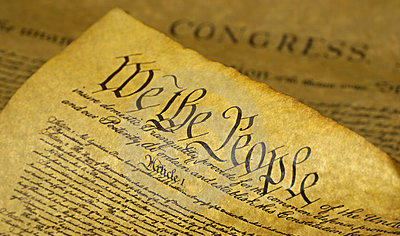
How Did the Bill of Rights Come to Be?
Although the U.S. Constitution was (and still is) an amazingly well-written document, some of the states were not completely sold on it because they felt is lacked sufficient protection for individual liberties and that it gave the federal government too much power. Given the fact that the people being asked to accept the Constitution as the framework for their new government had just recently fought a costly war to free themselves from tyranny, it was important to address these concerns sooner rather than later. Consequently, James Madison set to work “tweaking” the Constitution. He originally proposed 17 amendments; however, only 10 were ultimately ratified by the states. Because they directly address the concerns about individual liberties and an over-reaching federal government, those 10 amendments became known as the “Bill of Rights.”
What Rights and Privileges Are Granted by Each of the First Ten Amendments?
The Bill of Rights is made up of the first 10 amendments, each of which grants rights, privileges, and/or prohibitions that are important to understand if you ever find yourself on the wrong side of a criminal investigation and/or prosecution. The following are summaries of those rights, privileges, and prohibitions. The full text of the Bill of Rights, along with an extended history, can be found on the Bill of Rights Institute’s website.
- Amendment I — provides for freedom of religion, speech, the press as well as the right to assemble and to complain to the government.
- Amendment II – provides for the right to own firearms.
- Amendment III – prevents the government from forcing private citizens to house soldiers.
- Amendment IV – prevents unreasonable searches and seizures and requires law enforcement officers to obtain a warrant, based on probable case, before conducting a search and seizure.
- Amendment V – requires a grand jury before you can be tried for a serious crime (in federal court), prevents you from being tried twice for the same crime, prevents you from having to testify against yourself, prevents the government from taking your life, liberty, or property without due process, and if the government takes your property for public use you must be fairly compensated for it.
- Amendment VI – provides for a speedy and public trial in a criminal prosecution, the right to have the issue of guilt decided by an impartial jury, and gives you the right to an attorney. It also requires you to be informed of the charges against you and gives you the right to confront and cross-examine any witnesses against you.
- Amendment VII – gives you the right to a jury trial for civil cases in federal court but only of the amount being argued over exceeds a specific amount. At the time the Amendment was written, the amount was $20. Today, the amount is $75,000. It also prohibits the existence of courts other than those established by the government.
- Amendment VIII – prevents the government from imposing excessively high bail or fines and protects against cruel and unusual punishment.
- Amendment IX – stands for the idea that just because a specific right is mentioned in the Constitution, that does not mean that others which are not mentioned do not still exist.
- Amendment X – stands for the idea that any power which has not specifically been given to the federal government nor specifically prohibited to the states, in the Constitution belongs to the states and/or the people.
Contact a Murfreesboro Criminal Defense Lawyer
If you have additional questions or concerns about your rights as a suspect or defendant, it is in your best interest to consult with an experienced Murfreesboro criminal defense lawyer as soon as possible. Contact the team at Bennett, Michael & Hornsby today by calling 615-898-1560 to schedule your appointment.
- When Are Miranda Warnings Required? - April 16, 2024
- 5 Benefits of Mediation in a Tennessee Divorce - April 9, 2024
- Understanding White-Collar Crimes in Tennessee - April 5, 2024







